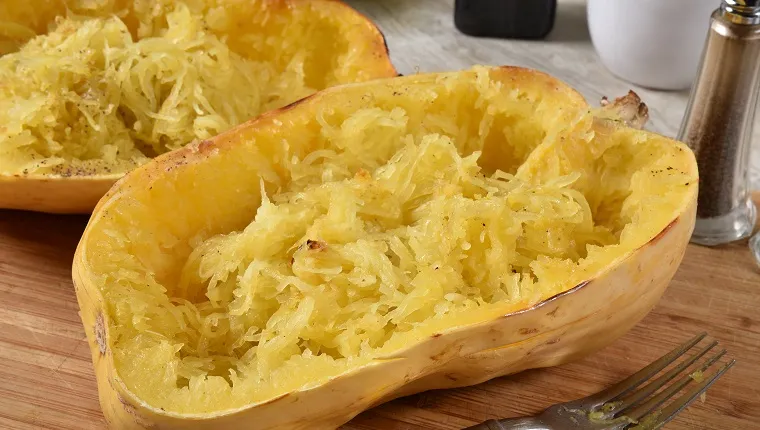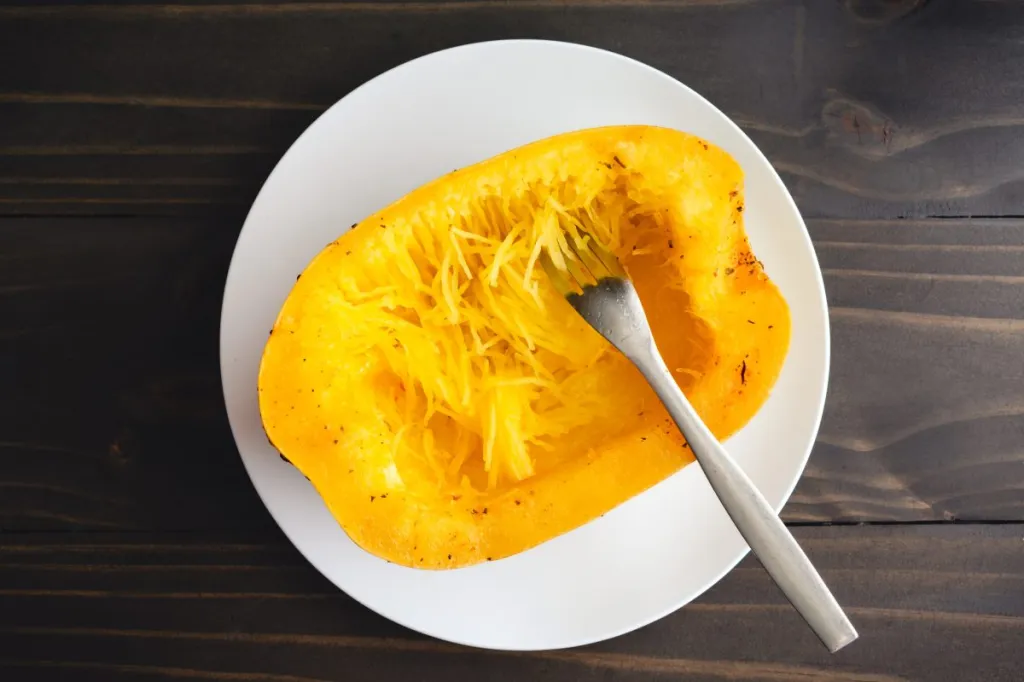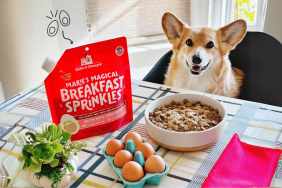Can dogs eat spaghetti squash? It’s kind of a marvel. Vegetable, but also spaghetti? Wonderful madness that we love to eat. But is it safe for our dogs to eat spaghetti squash?
The short answer is yes, cooked spaghetti squash is safe for dogs to eat with proper preparation. Given how simple this preparation is and the wealth of energy-providing nutrients it contains, we think it’s a wonderful addition to a dog’s diet.
That being said, all dietary additions should always be run by your veterinarian for the stone-cold facts. In the meantime, here is what you should know about how spaghetti squash is good for our dogs.
How Is Spaghetti Squash Good For Dogs?
Really, all varieties of cooked squash are a great choice for dogs nutritionally, all with unique benefits. Spaghetti squash, with the spaghetti-like strings removed from the husk, is easy to incorporate into a balanced diet for your dog.
Just one cup of spaghetti squash contains just over two grams of fiber. Fiber promotes digestive health and creates the kind of gut bacteria necessary for positive gut health. If your dog typically struggles a bit with constipation, the addition of fiber-heavy vegetables could help.
Furthermore, the vitamin content of spaghetti squash is also significant. Most notable is its concentration of vitamin B6, which aids in immunity, inflammation, and increasing energy metabolism.
Spaghetti squash also contains high amounts of beta carotene, approximately 90 micrograms, which is triple what a sweet potato offers, with fewer possible negative effects.
How Can I Safely Give Spaghetti Squash To My Dog?

Serving spaghetti squash to your dog is the same as how you prepare it for yourself. For humans, the entire appeal of the spaghetti squash is the spaghetti part. Removing the spaghetti-like strands from the cooked squash is a stellar replacement for pasta.
For dogs, it should be served the same way — cooked (raw squash is tough for their digestive system), without skin, and without seeds. Simply slice the squash in half, scoop out the seeds, and pop it in the oven until fork-tender. Then, use the fork to shred the strands free of the husk.
Some other forms of squash, such as the zucchini, have much thinner skin than the spaghetti squash and are typically edible. Given the thick skin, it should be removed to prevent intestinal obstruction.
And, finally, the most important thing to note is how you prepare the strands. Don’t serve spaghetti squash to your dog that you’ve sautéed in garlic or onions, as both are toxic for dogs. Often we use spaghetti squash in garlic-heavy Italian dishes, but this is completely unhealthy for our pups.
If you’re planning on sharing a cooked meal, keep some of your spaghetti squash strands aside for your dog. Safely add them into a balanced meal, instead of letting them eat up potential toxins in leftovers.









